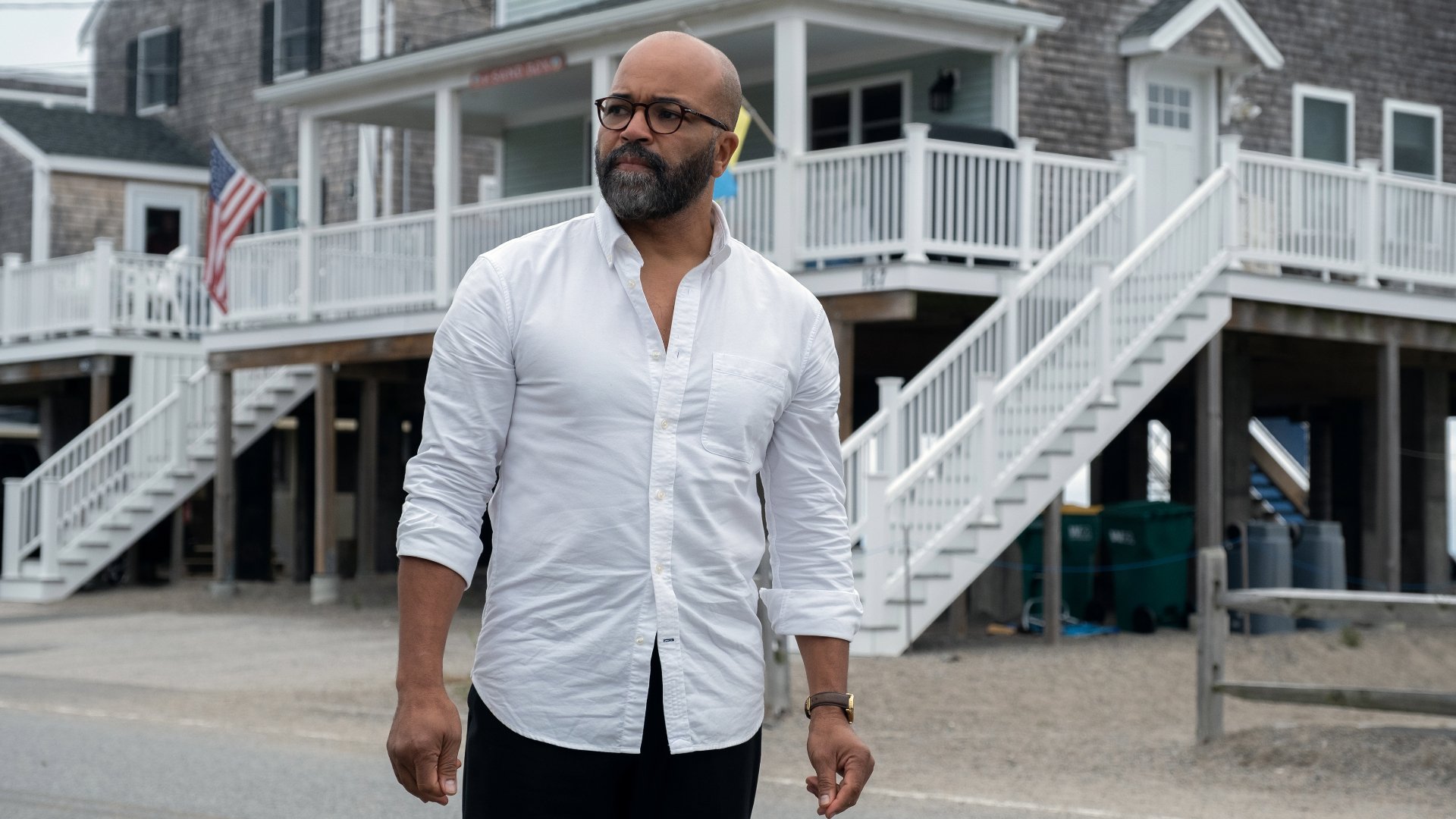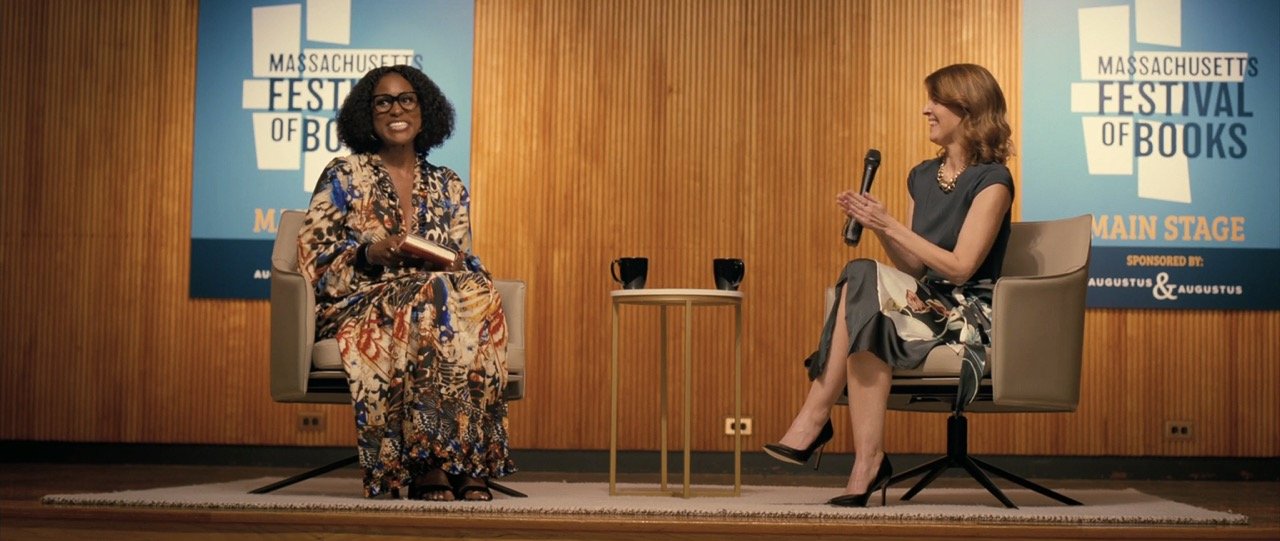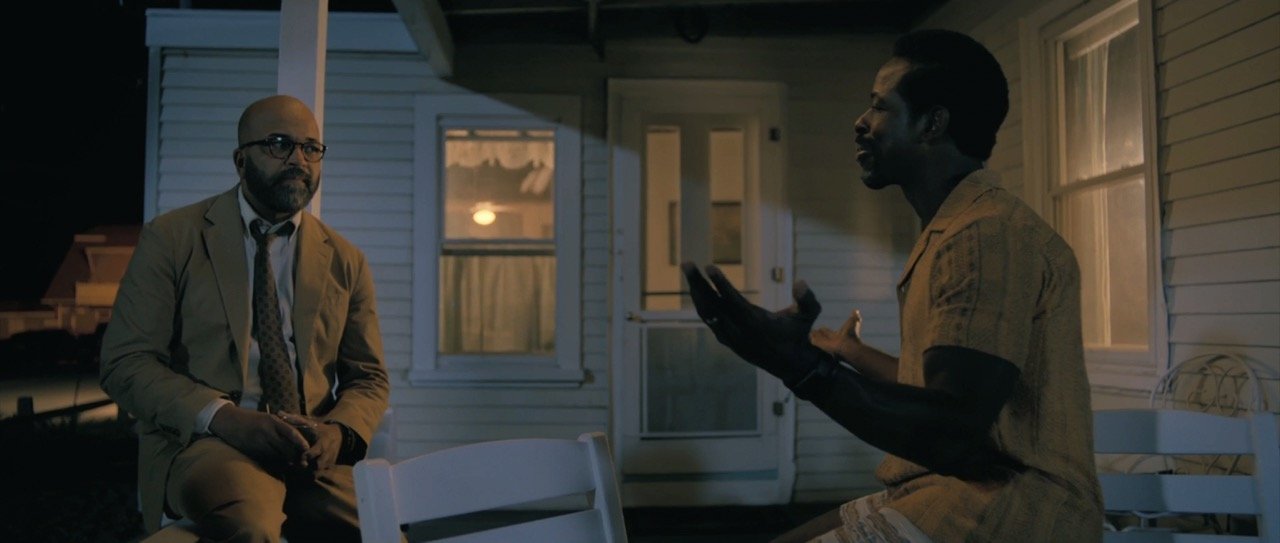'American Fiction' Review: Cord Jefferson's Truthful, Sharp Satire has Jeffrey Wright at his Finest
R: Language throughout, some drug use, sexual references and brief violence.
Runtime: 1 Hour and 57 Minutes
Production Companies: Orion Pictures, MRC Film, T-Street Productions, 3 Arts Entertainment
Distributor: Amazon MGM Studios
Director: Cord Jefferson
Writer: Cord Jefferson
Cast: Jeffrey Wright, Tracee Ellis Ross, Issa Rae, Sterling K. Brown, John Ortiz, Erika Alexander, Adam Brody, Leslie Uggams, Ellison Myra Lucretia Taylor, Keith David, Raymond Anthony Thomas
Release Date: December 15, 2023 (NY/LA) | December 22, 2023
Exclusively In Theaters
It was 2001 when Percival Everett published Erasure, which discussed the industry's unkindness towards Black writers who didn't want to touch stereotypical subjects—slavery, thug life, poverty, etc—with a ten-inch pole. Whatever publishers deemed "not Black enough" failed to find distribution. That book came out when Black entertainment was most diverse—UPN, I miss you! As the industry egotistically champions itself today, masking its white liberal guilt with inclusivity opportunities, writer/director Cord Jefferson's debut film adaptation, American Fiction, brushes off the dust on Everett's book. But there's not much dust to wipe, for his argument is still relevant.
Short-fused cynical novelist/English Literature professor Thelonious "Monk" Ellison (Jeffrey Wright) is frustrated while failing to capture a publisher for his books. He's temporarily suspended from his teaching duties before traveling home to Boston for a book festival and to visit his family. He attends a panel at the fest where newly acclaimed writer Sintara Golden (Issa Rae) reads an excerpt from her book, which falls into the Black trauma stories he despises. That moment took me back to watching You People at the Paris Theater and seeing a diverse crowd laugh their asses off over the offensive Matt Rife-level bad jokes as my faith in humanity sank.
Monk then visits his Alzheimer’s-stricken mother, Agnes (Leslie Uggams), and sister, Lisa (Tracee Ellis Ross). Shortly after, tragedy hits, and it's up to Monk and his estranged brother Cliff (Sterling K. Brown) to tend to Agnes. Meanwhile, Monk starts a romantic relationship with a fangirl next-door neighbor, Coraline (Erika Alexander).
Still pent up about the publishing industry landscape, Monk, under the alias Stagg R. Leigh, writes a ridiculous, over-the-top book that satirizes the kind of Black trauma stories mined for profit. To Monk's astonishment (and dismay), his book takes off as a runaway hit, catapulting him into unexpected success and enabling his ego.
The lines between parody and reality blurred during American Fiction. I've shared the same resentments towards the industry and received many soul-crushing microaggressions from foolish, appropriating white folks at every turn during my career. "White people don't want the truth. They want to feel absolved," Monk's agent, Arthur (John Ortiz), tells him. He replies, "Fortunately, that's not my problem." That dialogue exchange accurately sums up how I became the first Black Gen-Z film journalist in 2018 thanks to Hollywood's response to a Brie Larson speech, whereas “Rendy Reviews” had already been up and running for six years. While I could make a Venn diagram showing the areas in which, at times, American Fiction became my "autobiografy," Jefferson's most potent display as a storyteller is how harmoniously he juxtaposes the satire and familial thematic elements with Wright as the perfect wild card steering the wheel.
Monk's rise to success via My Pafology and unraveling his complicated relationship with his family are the two hands simultaneously at play. Amid criticizing the kind of Black trauma drama that tends to get award recognition—ironically, as this film is a solid awards contender—the family melodrama magnifies Black people's versatile lives not rooted in exploiting our pain like the Black dramedies they used to make in the late ‘90s and ‘00s (usually starring Taye Diggs or Queen Latifah). Remember those?
While its satire speaks hard truths, American Fiction finds its singular identity in dissecting Monk, all the negative traits he inherited from his late dad, and how his wishy-washy superiority complex affects others. As the family tree functionality unravels, it proves that the apple doesn't fall far from the tree.
Jefferson's script gradually rises to absurdism as Monk and Everett detail the kind of folks and personalities he satirizes. The film is actively aware of what modern Black art is. While Monk is frustrated with the people feeding into the system, he sharply communicates that those stories are some people's interests, from audiences to market buyers. The moments featuring top-tier marketing agents blurred the lines, for their excruciatingly insensitive dialogue adds to the hilarity. However, it rings true to what we face. It's those reality-detached white salespeople who don't want to listen to Black voices unless it benefits their pockets. You can read how they put Black squares on their Instagrams or change their entire Letterboxd favorites to strictly Black films after George Floyd. Small background details, like Andy Warhol-styled pop-art posters of Ruth Bader Ginsburg hanging on the office wall of a white exec, are hilarious.
Jeffrey Wright has always been that eloquent, nerdy guy. While he amazes me in whatever projects he appears in, I'm glad that with his roles in Asteroid City and American Fiction, he finally got to wear his clown nose. Wright is at his funniest and most adaptable range, juggling piercing deadpan material with ace comic timing and naturalistic humanity during the grounded family melodrama beats. His range expands once he goes under his Stagg pseudonym, where he becomes Louis from O.G., a good HBO flick starring Wright as a prison inmate. Check it out. In the context of this faux "street" persona taking over to support his Pafology's road to success, it only enhances his performance and the film's overall comic nimbleness.
American Fiction’s supporting cast adds weight to the grounded melodrama—particularly the effortlessly funny Leslie Uggams as Monk's mom, Agnes. Not only does Uggams portray Alzheimer’s well, making the situation hard for the Ellison siblings to take care of her, but she’ll also shock you with words that deeply cut her kids.
Sterling K. Brown is a standout as Cliff, Monk’s newly-out gay brother who is a mess on his own but sees through his family's insensitive bullshit. At times, he's the voice of reason, calling out his family's dysfunction for what it is—like what many baby siblings do.
The script suffers from major tonal whiplash between juggling Monk's accidental success and the authentic family melodrama. American Fiction is quick to strike with a gut-busting hilarious punch, then immediately kicks your ass with devastating drama that veers into soap opera territory due to bad timing. Thankfully, the talented cast compensates for the script’s shortcomings.
Led by a phenomenal Jeffrey Wright in his career-best work, Cord Jefferson's American Fiction is the cinematic manifesto for every Black creative who was finally recognized in the industry because of white guilt. The satirical lines blurred because shit got so real, I GROANED. It may have tonal unevenness preventing it from greatness, but the teeth on its satirical examination got fangs.









